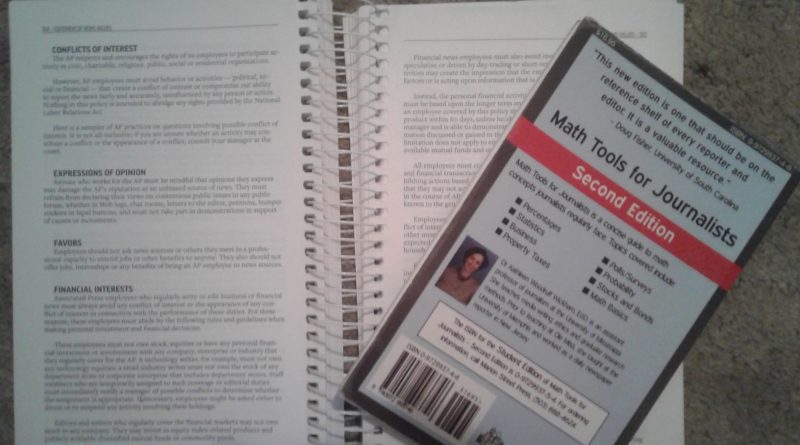Discussion of Journalistic Ethics Wrap Up
Continued Eleven Part Series Concerning Journalistic ethics.
ALLIANCE — Journalistic ethics is something that seems to be lacking, and many people no longer trust many major and minor news outlets. Personal opinions, political polarization, fabrication and other ethical lapses taint the news and create biased beliefs.
Bimal Gautam wrote for The Centre for Media Freedom, “Though codes of ethics vary from profession to profession, their ultimate goals remain the same. In every profession, codes of ethics are formulated to make professionals concerned morally responsible towards their duty and the society at large. As in other professions, journalists and media professionals have to follow their own code of ethics. Code of ethics, however, is neither law nor any mandatory rule. It is all about moral issue and value. Since journalism is a socially responsible profession, it also has its distinct code of ethics for journalists.”
According to Harris polls, at one time people had a much higher respect for reporters, but that number plummeted over the decades. This reached the point a higher percentage of people have no respect for journalism than those who do still feel some news outlets are still honest and ethical.
This publication contacted the local radio station, KCOW, and the newspaper Alliance Times-Herald in Alliance, Neb. to request an interview concerning journalistic ethics.
Unfortunately the Alliance Times-Herald provided no reply after to a first request by email to speak with the publisher and managing editor. A second email did not make it to the ATH as apparently this local newspaper marked emails from this publication as spam.
KCOW replied using Messenger, “We would not be interested in an interview regarding Journalistic Ethics. Thank you for contacting us. If you have any other questions please feel free to call our General Manager Olivia Hasenauer or our Nebraska operations manager David Lee.” As stated in the same Messenger string, the reply came from Hasenauer and Lee.
The lack of journalistic ethics is something of a plague on the news casting industry, and more and more people are developing a deep distrust of the news. Journalists once held a high position in trust, accuracy and respect. Unfortunately this respect declined drastically over the last three decades.
The Society of Professional Journalists provides quite an extensive list of ethical points to which news reporters should adhere. It may be quiet easy for a news outlet to lose its credibility if objectivity is not maintained.
To maintain credibility with the consumer, following an ethical code is important. If people see reporters and news outlets display personal opinions, political views or any one of a long list of ethical issues. Maintaining credibility is very important in order for a news outlet, and losing credibility can make many consumers see the outlet as more of a printed or broadcasted blogs.
Journalistic Ethics Series Article 1 of 11 – Personal Opinion
Journalistic Ethics Series Article 2 of 11 – Statistics and Numbers
Journalistic Ethics Series Article 3 of 11 – Political Affiliation
Journalistic Ethics Series Article 4 of 11 – Fabrication and Manipulation
Journalistic Ethics Series Article 5 of 11 – Attribution and Plagiarism
Journalistic Ethics Series Article 6 of 11 – Self-Censorship
Journalistic Ethics Series Article 7 of 11 – Data and Information Sources
Journalistic Ethics Series Article 8 of 11 – Use of First Person
Journalistic Ethics Series Article 9 of 11 – Favors, Gifts and Financial Gain
Journalistic Ethics Series Article 10 of 11 – Reviews and Giving Orders
Journalistic Ethics Series Article 11 or 11 – Taking Sides
Other Source Material Available Upon Request
